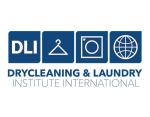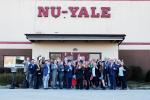CHICAGO — What sounded like science fiction just a few years ago has become a practical reality for many dry cleaners today. Artificial intelligence — AI — has evolved from a futuristic concept into an increasingly essential tool that’s not only reducing labor costs but helping operators better serve their customers and staff.
The Early Adopters
At Dublin Cleaners in Columbus, Ohio, Sea Khun was among the first to recognize AI’s potential. Working as an administrative assistant with an IT background, Khun began experimenting with AI tools about three and a half years ago when, he says, “if you mentioned AI back then, people would look at you funny.”
His introduction was simple: using AI as what he calls a “wordsmith” to help draft and refine emails.
“Sometimes when I’m writing things, it’s not just about misspelled words, but the way it’s conveyed,” Khun says. “At times, I can come off as a bit blunt and abrasive, and it helps tone things down for me. I can put in the context and I say, ‘Make this a bit more professional,’ or, ‘Not so blunt — more casual.’”
From that beginning, Khun’s use of AI has expanded dramatically. Today, he uses it for everything from creating custom spreadsheet scripts and building internal applications to conducting deep research and writing bilingual training materials for Dublin Cleaners’ Spanish-speaking employees.
Beyond Basic Applications
Robert Strong, president of California’s Country Club Cleaners, discovered AI’s power through a presentation at an industry meeting. Initially using it “as a souped-up version of Google,” Strong quickly realized its potential when he needed to analyze some of his company’s expenditures.
“My supply costs were so high, and I really didn’t know why,” he says. “I didn’t know how much soap we used, or how much we should be using. I had no idea if the barrels were priced correctly.”
Strong scanned his supply cost PDFs and had Google’s AI client Gemini analyze the data. The results were eye-opening.
“I found that 54% of what we spend on supply costs goes to soaps and chemicals,” he says, leading to insights that helped him better understand his cost structure.
But Strong found that AI’s benefits extend beyond financial analysis. When facing a legal challenge from a former employee, he used AI to analyze the complaint, rather than immediately hiring an attorney.
“She has complaints such as, ‘The manager yelled at me, and I was fired without notice,’” he says. “Well, neither of those things is illegal. Managers are allowed to yell, and California is an at-will employment state. You don’t have to be given a warning or a reason, and I didn’t have to hire an attorney to learn about this.”
The Luxury Market Approach
At Juliette, an upscale drycleaning service in New York City, CEO Rachelle Balanzat has taken a different approach, viewing AI as an extension of her brand’s commitment to “invisible luxury.”
For Balanzat, AI isn’t just about efficiency — it’s about creating seamless, intelligent experiences that feel inherently human for her clients.
“I believe true luxury is frictionless,” she says. “The best technology doesn’t feel robotic — it feels human, even empathetic. That’s what we aim for. Every AI decision is filtered through our brand lens: Will this make the customer feel seen, remembered and cared for — all without us lifting a finger?”
Balanzat’s most ambitious AI project is her digital clone/concierge (whoisjuliette.com/aiclone). The page offers users the choice of typing or asking questions aloud, which are then answered by Balanzat’s digital avatar, engaging the customer with realistic interactions in Balanzat’s own voice.
“The idea was simple: What if I could multiply myself?” she says. “(The clone) is trained on my voice, tone and brand knowledge, and eventually she’ll handle customer service, sales and onboarding 24/7.”
Come back Tuesday for Part 2 of this series, where we’ll examine other surprising places cleaners are finding to put AI to work.
Have a question or comment? E-mail our editor Dave Davis at [email protected].











































